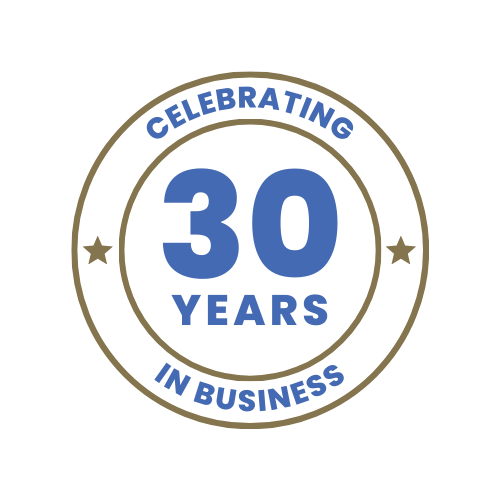Leadership in an Age of Fast-Paced Change
- By Jerry Comer
- •
- 01 Jun, 2018
- •
“Healthy Organization” Foundation #1: Leadership.
If you search Amazon.com using the term “leadership”, Amazon will return 95,695 results. People have been writing about leadership since ancient times:
- Anyone can hold the helm when the sea is calm…Publilius Syrus, 1st century BC
- Know thyself…Plato, 4th century BC
- Treating people with respect will gain one wide acceptance and improve the business…Tao Zhu Gong, 5th century BC
If we try, we could probably find writings on leadership in the original Sumerian writing system from 2,600 B.C.!

Good leaders do some very important things. They:
- Manage and inspire the human side of their enterprise – developing a vision, sharing and living values and building a great team.
- Find ways to get growth and ever better performance out of the business they run today.
- Have a shrewd vision of what tomorrow’s business will be, and steer their company into a position to prosper in the future.
Leadership styles have evolved with time and society. In the “Mad Men” days, the dominant leadership style was “transactional”. The leader influenced the team through an equitable exchange or transaction based on self-interests of both, i.e. “You do this work and you’ll get this pay.” (This was also known, at times as “my way or the highway” leadership.) “Charismatic” leadership occurs when followers attribute heroic or extraordinary leadership abilities to their leaders.

Although this could mean “cult” (Richard Manson), it could also show up in such corporate stalwarts as Apple with Steve Jobs or the Virgin Group with Richard Branson.
Recently, much has been written about “transformational” leaders, who are known for:
- Creating trust among all team members.
- Creating alignment within the team.
- Having an orientation toward success.
- Displaying genuine interest in followers and consideration for all individuals inside andoutside of the team.
- Respecting and supporting all team members.
Teams that embrace transformational principles are typically high-performing, goal-oriented groups that operate beyond self-interest and with high moral and ethical values, shared by all.
According to a study by publisher McGraw-Hill, leadership trends in 2012 include:
- Leaders don’t have to be perfect but they do need to be honest and authentic.
- Leaders will use their expertise to deliver bottom line profits AND commit to tackling social problems.
- Leaders will drive more conversation about LEAN principles and continuous improvement.
Looking even further out, a compilation of key leadership competencies for 2020 include:
- Collaborative orientation
- Developer of people
- Learning agility
- Digitally proficient
- Global mindset including cultural agility
- Conscious capitalist/green focus
- Future focus
- Adaptability/change orientation
- Innovative/creative champion
- 360 communicator
- Able to thrive on complexity and chaos
There is nothing natural in organizations of human beings except chaos. It takes strong leadership (and skillful management) to create followers, individuals who decide to align with the leader and the team for the good of the whole and the mission.

Other Posts

I recently posted an article published in Forbes about T. Boone Pickens, famous for an active entrepreneurial life and his book, The First Billion is the Hardest . Every year around this time, he’s asked to share his wisdom, gathered over many decades, with some college graduating class in the U. S. The Forbes article includes six “Booneisms” he’s known for, but the one I like the most is, “A fool with a plan can beat a genius with no plan.”
Although the CEOs and senior managers I regularly work or interact with are certainly NOT fools, all too often they’re working without a plan. While it may be okay on Saturday to get up and “let the day take you”, that’s not a good recipe for business, large or small. Too much is at stake!
The ideal planning sequence takes place in the context of shared values and a true team of managers committed to each other AND a common goal. (I’ve often said to management teams, “You don’t have to like each other, but you MUST be able to communicate effectively and solve problems together as you work to achieve your objectives.”)


Yesterday, a friend and colleague said she was having trouble “holding herself accountable”. She wasn’t getting things done that she thought she should be, including some things she deemed important to the business. For perspective, this woman is running a business, supervising a stable workforce and keeping multiple clients happy. On top of all that, she’s a mom! (Can you say “busy”?)
The conversation quickly went to a few questions:
- What are you not achieving?
- Where’s the breakdown?
- What are your goals?


Effective communication is one of the key functions of management, yet we frequently find ourselves frustrated with others not understanding what we have shared. After we say our piece, we assume that others see things the same way we do but the only thing we can be sure of, even after a lengthy conversation, is that what’s in your mind is not exactly the same in their mind. We just hope the gaps are few and insignificant.
The problem is even worse if the communication comes in the form of a management “presentation” with little/no opportunity for dialogue. I once spent an hour presenting “how we make money” to a group of front-line employees: Revenue – (Material + Labor + Manufacturing Overhead + Other Overhead) = Profit. The presentation was complete with flipchart graphics. It was clear from some of the questions at the end of the presentation that some of the employees still looked at Revenue as the amount of money theoretically distributable to all the members of the company. While frustrating, this incident just confirmed how hard it is to be truly effective in your communication. Also, it’s important to keep in mind that the primary responsibility for the effectiveness of communication lies with whoever is sending the message.
Studies have shown that managers typically under communicate but think they did a good job. It’s not just executive management. This “failure to communicate” affects all members of an organization. If you are a middle manager, you have the challenge of communicating both up and down the chain of command. If you are a front-line team member, it’s important you effectively communicate any issues or challenges you face in the performance of your job so they may be resolved. Anything less than excellent communication, at all levels, negatively impacts relationships and hurts the bottom line.
Here’s a formula for communication success:
- Preparation:
- Understand your objective. Why are you communicating?
- Understand your audience. What do they need to know?
- Plan what you want to say.
- Choose the best communication channel:
- One-on-one conversation
- Team presentation/discussion
- Written document:
- Match your style to reader’s preferences
- Avoid jargon or slang
- Check your grammar and punctuation
- Check for tone and attitude
- Email/text for simple directions (NEVER email/text complex or negative content.)
- Consider:
- Cultural context of organization
- Potential emotional content
- Need for detail
- The need to ask and answer questions
- Draft:
- Decide exactly what to convey.
- As much as possible, use pictures, charts, diagrams.
- Verbal: prepare written notes to guide the conversation.
- Written: draft document/presentation for sharing. Review as necessary to ensure effectiveness. Send.
- If sensitive, solicit other inputs and get feedback prior to sending/engaging.
- Engage (Verbal):
- Be concise.
- Listen actively.
- Stay open.
- Be attentive and avoid distractions.
- Respect others’ feelings
- Don’t interrupt!
- Pay attention to body language.
- Ask questions to ensure understanding.
- Record all action items: What-Who-When.
- Follow Up:
- How effective was the communication?
- Did I/we achieve the stated objectives?
- What could we do to improve communication?
Effective communication is an art that all of us would do well to master, for our own good and that of our organization. Are you getting the results you want from your communication or are you constantly thinking, “Why don’t they get it?”
Comer and Associates, LLC develops great leaders and teams and facilitates projects that lead to growth and profit. Our April 11 – 13 ADVANCE management and leadership workshop will cover all the key functions of management, including communication.
